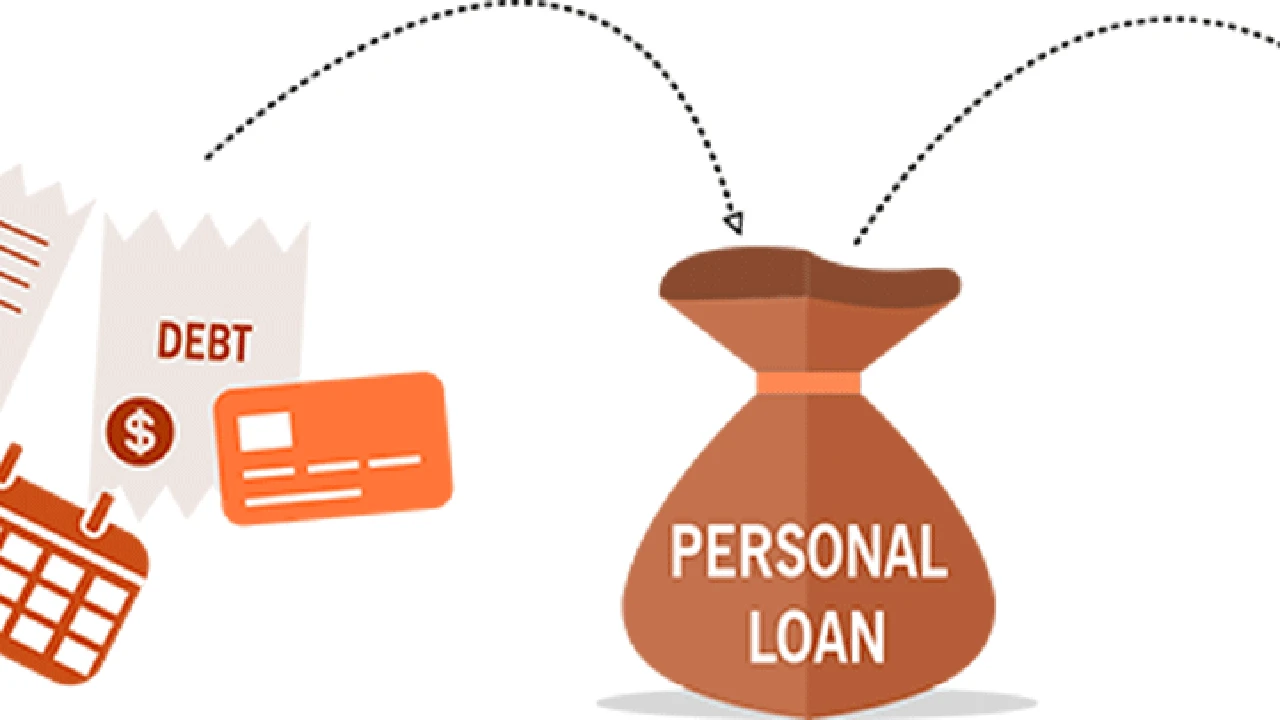Debt Consolidation and Estate Planning Integrating Your Financial Goals
Learn how debt consolidation can fit into your broader estate planning to secure your financial legacy.

Learn how debt consolidation can fit into your broader estate planning to secure your financial legacy.
Debt Consolidation and Estate Planning Integrating Your Financial Goals
Hey there! Let's talk about something super important but often overlooked: how debt consolidation can actually play a huge role in your estate planning. You might be thinking, 'Estate planning? That's for rich people, or when I'm much older.' But honestly, it's for everyone, and it's about making sure your loved ones are taken care of and your wishes are respected, no matter what. And guess what? Getting your debt under control through consolidation can make that whole process a lot smoother and more effective.
Think about it: if you've got a bunch of different debts – credit cards, personal loans, medical bills – all with varying interest rates and due dates, it can be a real headache to manage. Now imagine if something unexpected happens to you. Who's going to sort all that out? Your family, probably. And that's a burden no one wants to leave behind. Debt consolidation can simplify all of that, making your financial picture much clearer for both you now and your beneficiaries later.
Understanding the Basics of Estate Planning and Debt Consolidation
First off, let's quickly define what we're talking about. Estate planning isn't just about writing a will, though that's a big part of it. It's about arranging for the management and disposal of your estate during your life and after your death. This includes things like setting up trusts, designating beneficiaries, and making decisions about your healthcare and finances if you become incapacitated. Debt consolidation, on the other hand, is the process of combining multiple debts into a single, more manageable payment, often with a lower interest rate. The connection might not be immediately obvious, but trust me, it's there.
When you consolidate your debt, you're essentially tidying up your financial house. This tidiness has ripple effects that can significantly benefit your estate plan. For instance, if your estate is bogged down with complex debts, it can delay the distribution of assets to your heirs. It can also reduce the value of your estate, as creditors will need to be paid before beneficiaries receive anything. By consolidating, you're not just making your monthly payments easier; you're also making your financial legacy cleaner and more efficient.
How Debt Consolidation Enhances Your Estate Plan and Financial Legacy
Let's dive into some specific ways debt consolidation can be a game-changer for your estate planning efforts:
Simplifying Your Financial Picture for Heirs and Executors
Imagine your executor trying to navigate a maze of different creditors, each with their own rules and demands. It's a nightmare! When you consolidate your debts, you reduce that maze to a single, clear path. Instead of dozens of accounts, there's just one. This makes it incredibly easier for your executor to understand your financial obligations, settle your debts, and distribute your assets according to your wishes. Less complexity means less stress for your loved ones during an already difficult time, and potentially faster resolution of your estate.
Reducing the Financial Burden on Your Estate and Beneficiaries
High-interest debt can eat away at your estate's value. Every dollar paid in interest is a dollar that doesn't go to your beneficiaries. By consolidating into a lower-interest loan, you're effectively preserving more of your wealth. This means more assets for your heirs, whether it's cash, property, or investments. It's like putting more money back into your estate's pocket, ensuring your legacy is as robust as possible.
Freeing Up Cash Flow for Other Estate Planning Tools
Lower monthly debt payments mean more disposable income. This extra cash flow isn't just for fun; it can be strategically used to fund other crucial aspects of your estate plan. For example, you might be able to afford higher life insurance premiums, which can provide a significant tax-free payout to your beneficiaries. Or, you could contribute more to a trust, setting aside funds for specific purposes like a child's education or a charitable donation. This increased financial flexibility allows you to build a more comprehensive and impactful estate plan.
Improving Your Credit Score for Better Loan Terms and Future Planning
While not directly an estate planning tool, a better credit score resulting from responsible debt consolidation can indirectly benefit your long-term financial health, which in turn supports your estate. A good credit score can help you secure better rates on future loans, like a mortgage or a business loan, which could be part of your overall financial strategy that impacts your estate. It also reflects financial stability, which is a positive indicator for any financial institution you might deal with in the future.
Practical Debt Consolidation Products and Their Estate Planning Implications
Let's look at some common debt consolidation products and how they interact with your estate planning. We'll also touch on some specific product recommendations, keeping in mind that these are general suggestions and you should always do your own research and consult with a financial advisor.
Personal Loans for Debt Consolidation A Flexible Option for Estate Planning
Personal loans are a popular choice for debt consolidation because they're unsecured (meaning you don't put up collateral like your house) and offer fixed interest rates and repayment terms. This predictability is a huge plus for estate planning. Your executor will know exactly how much is owed and when, making it easy to manage.
- How it works: You take out a new loan to pay off all your existing debts. You then make one monthly payment to the personal loan lender.
- Estate Planning Benefit: Clear, predictable debt. If you pass away, the remaining balance is a straightforward liability for your estate. If the loan is unsecured, creditors typically have to make claims against your estate, and if there aren't enough assets, the debt may go unpaid (depending on state laws).
- Product Recommendations:
- SoFi Personal Loan: Known for competitive rates for good credit, no origination fees, and flexible terms. They offer loans from $5,000 to $100,000.
- LightStream Personal Loan: Offers some of the lowest rates for excellent credit, with a rate beat program. Loans from $5,000 to $100,000.
- Marcus by Goldman Sachs Personal Loan: No fees, competitive rates, and a clear application process. Loans from $3,500 to $40,000.
- Typical Interest Rates: 6% - 36% APR, depending on credit score.
- Use Case: Ideal for consolidating high-interest credit card debt or multiple smaller loans into one manageable payment.
Balance Transfer Credit Cards A Short-Term Strategy for Estate Benefits
Balance transfer cards can be fantastic for short-term debt consolidation, especially if you can pay off the transferred balance before the promotional 0% APR period ends. This can save your estate a significant amount in interest.
- How it works: You transfer balances from high-interest credit cards to a new card with a promotional 0% APR period (usually 12-21 months).
- Estate Planning Benefit: If you manage to pay off the debt during the 0% period, your estate won't have to deal with that debt at all. If there's a remaining balance, it's still a single credit card debt, which is simpler than multiple.
- Product Recommendations:
- Chase Slate Edge: Offers a long 0% intro APR period on balance transfers and purchases, with no annual fee.
- Citi Simplicity Card: Known for one of the longest 0% intro APR periods on balance transfers and purchases, with no late fees or penalty rates.
- Discover it Balance Transfer: Offers a good 0% intro APR period and earns cash back rewards.
- Typical Interest Rates: 0% APR for 12-21 months, then 15% - 25% APR. Balance transfer fees usually 3-5%.
- Use Case: Best for individuals who can realistically pay off their debt within the promotional period.
Home Equity Loans or HELOCs Leveraging Assets for Estate Security
If you own a home, a home equity loan (HEL) or a home equity line of credit (HELOC) can offer lower interest rates because they're secured by your home. However, this also means your home is at risk if you can't make payments. From an estate planning perspective, this can be a double-edged sword.
- How it works: You borrow against the equity in your home. A HEL is a lump sum with fixed payments, while a HELOC is a revolving line of credit.
- Estate Planning Benefit: Lower interest rates mean less debt eating into your estate. However, it converts unsecured debt into secured debt, meaning your home could be foreclosed upon if payments aren't made, potentially impacting your heirs' inheritance of the property.
- Product Recommendations:
- Bank of America Home Equity Line of Credit: Offers competitive rates and a range of loan amounts.
- Wells Fargo Home Equity Loan: Known for various loan options and customer service.
- Local Credit Unions: Often offer very competitive rates on HELs and HELOCs to their members.
- Typical Interest Rates: 4% - 10% APR, often variable for HELOCs.
- Use Case: Suitable for homeowners with significant equity and a stable income, who are comfortable using their home as collateral.
Debt Management Plans (DMPs) A Structured Approach for Estate Clarity
While not strictly a consolidation loan, a Debt Management Plan (DMP) offered by credit counseling agencies can consolidate your payments and often reduce interest rates. This can be a great way to simplify your financial obligations for your estate.
- How it works: A credit counseling agency negotiates with your creditors to lower interest rates and combine your payments into one monthly sum paid to the agency, which then distributes it to your creditors.
- Estate Planning Benefit: Provides a single, predictable payment and often reduces the total amount of interest paid, preserving more of your estate. It also shows a clear, structured plan for debt repayment.
- Product Recommendations:
- National Foundation for Credit Counseling (NFCC) members: A network of non-profit credit counseling agencies.
- GreenPath Financial Wellness: A well-regarded non-profit offering DMPs and financial education.
- Money Management International (MMI): Another large non-profit credit counseling agency.
- Typical Costs: Monthly fees usually range from $0 - $75, plus a setup fee.
- Use Case: For individuals struggling with high credit card debt who need help negotiating with creditors and prefer a structured repayment plan.
Integrating Debt Consolidation into Your Broader Estate Planning Strategy
Now that we've looked at the tools, let's talk about how to actually weave debt consolidation into your overall estate plan. It's not just about getting rid of debt; it's about how that action supports your bigger picture goals.
Updating Your Will and Trust Documents After Debt Consolidation
Once you've consolidated your debt, it's a perfect time to review and update your will and any trust documents. Your financial landscape has changed, and your estate plan should reflect that. For example, if you've significantly reduced your debt, you might want to reallocate how your assets are distributed. If you've used a secured loan like a HEL, you'll want to ensure your will clearly addresses how that property should be handled upon your passing, especially if there's still a lien on it. Make sure your executor knows about your consolidated debt and has all the necessary account information.
Designating Beneficiaries and Protecting Their Inheritance
Debt consolidation helps protect your beneficiaries' inheritance by reducing the claims against your estate. When you have less debt, more of your assets can go directly to your loved ones. Consider how your consolidated debt might impact specific bequests. For instance, if you've designated a certain amount of money to a charity, having less debt means there's a higher chance that full amount will be available. Also, ensure your beneficiary designations on accounts like life insurance and retirement plans are up-to-date, as these typically bypass probate and go directly to the named beneficiaries, regardless of your will.
Considering Life Insurance to Cover Remaining Debts
Even with consolidation, some debt might remain. Life insurance can be a powerful tool in your estate plan to ensure that any outstanding debts are covered, preventing your loved ones from having to shoulder that burden. If you've consolidated into a single loan, it's easier to calculate the amount of life insurance needed to cover that specific liability. This provides peace of mind, knowing that your family won't inherit your financial obligations.
Regularly Reviewing Your Financial Situation and Estate Plan
Life changes, and so should your financial and estate plans. Debt consolidation is a significant financial event, but it's not the last one. Make it a habit to review your consolidated debt repayment progress, your overall financial health, and your estate plan at least once a year, or whenever there's a major life event (marriage, birth of a child, new job, etc.). This ensures your plan remains relevant and effective in securing your financial legacy.
Common Questions About Debt and Estate Planning
What happens to my debt when I die?
Generally, your debts become part of your estate. Your executor will use your assets to pay off creditors before distributing anything to your heirs. If there aren't enough assets, unsecured debts may go unpaid, but secured debts (like a mortgage or car loan) will still be tied to the asset. This is why consolidating and reducing debt is so important for your estate.
Can my family be held responsible for my debts?
In most cases, no. Family members are typically not responsible for a deceased person's debts unless they co-signed a loan, are a joint account holder, or live in a community property state. However, the debt can reduce the inheritance they receive from your estate.
How does debt consolidation affect my ability to get life insurance?
Consolidating debt and managing it responsibly can actually improve your financial health, which can be viewed favorably by life insurance providers. A lower debt-to-income ratio and a better credit score might lead to more favorable premiums or a higher chance of approval for larger policies, which can then be used to protect your estate.
Final Thoughts on Securing Your Financial Legacy
Debt consolidation isn't just about getting out of debt; it's a strategic move that can profoundly impact your long-term financial well-being and, crucially, your estate plan. By simplifying your finances, reducing interest payments, and freeing up cash flow, you're not just helping yourself today; you're building a stronger, clearer financial legacy for your loved ones. It's about taking control, making smart choices, and ensuring that your hard-earned assets are protected and distributed according to your wishes. So, take that step, consolidate your debt, and then take another step to integrate that newfound financial clarity into a robust estate plan. Your future self, and your family, will thank you for it.
:max_bytes(150000):strip_icc()/277019-baked-pork-chops-with-cream-of-mushroom-soup-DDMFS-beauty-4x3-BG-7505-5762b731cf30447d9cbbbbbf387beafa.jpg)






